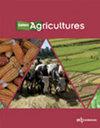Sustaining community-managed rural water supply systems in severe water-scarce areas in Brazil and Tunisia
IF 1.1
4区 农林科学
Q3 AGRICULTURE, MULTIDISCIPLINARY
引用次数: 3
Abstract
In many countries, the challenge of sustaining rural water supplies is entrusted to community organizations, which have difficulties in performing durably the operation, maintenance and cost recovery of rural water supply systems. This paper analyzes how rural communities struggle to ensure a sustainable access to water, while seeking close interaction with outside actors such as the State, NGOs, and politicians. The analysis is based on field observations, interviews and participatory workshops in four community-managed water supply systems in Brazil and Tunisia. To sustain the access to water, communities limit their dependance on community-managed water supply systems and diversify water sources for different uses; they adapt the technical and organizational dimensions of water supply systems through bricolage; and use political leverage to obtain financial and technical support. Understanding how communities adapt the infrastructure and the organization of rural water supply, in close interaction with external actors, may inspire water providers in designing more resilient water systems.在巴西和突尼斯严重缺水地区维持社区管理的农村供水系统
在许多国家,维持农村供水的挑战被委托给社区组织,它们难以持久地进行农村供水系统的操作、维修和费用回收。本文分析了农村社区如何努力确保可持续用水,同时寻求与国家、非政府组织和政治家等外部行为体的密切互动。该分析是基于巴西和突尼斯四个社区管理供水系统的实地观察、访谈和参与性讲习班。为了维持获得水的机会,社区限制对社区管理的供水系统的依赖,并使不同用途的水源多样化;他们通过拼凑调整供水系统的技术和组织层面;并利用政治杠杆获得财政和技术支持。了解社区如何适应农村供水的基础设施和组织,与外部行动者密切互动,可能会激励供水商设计更具弹性的供水系统。
本文章由计算机程序翻译,如有差异,请以英文原文为准。
求助全文
约1分钟内获得全文
求助全文
来源期刊

Cahiers Agricultures
农林科学-农业综合
CiteScore
2.00
自引率
22.20%
发文量
23
审稿时长
3 months
期刊介绍:
Cahiers Agricultures is a - mainly - French language scientific journal on world farming systems, how they are changing and their role in society. It is aimed at all those – researchers, field workers, teachers – who are interested in a holistic reflection on the agricultural world.
Cahiers Agricultures gives priority to research on agriculture as implemented by farmers, that has meaning for citizens in countries in the North and South, as opposed to research work conducted in a controlled environment (laboratory, research center, etc.). Research of this type is often multidisciplinary and takes into account the knowledge and know-how of the different stakeholders. The different parties are also actively involved in research, alongside the scientists. In this way, the journal stimulates debate on issues linked to society, such as the impact of using water and nitrogen fertilisers, peri-urban farming, fish farming, livestock production in rural areas, food security, etc.
 求助内容:
求助内容: 应助结果提醒方式:
应助结果提醒方式:


